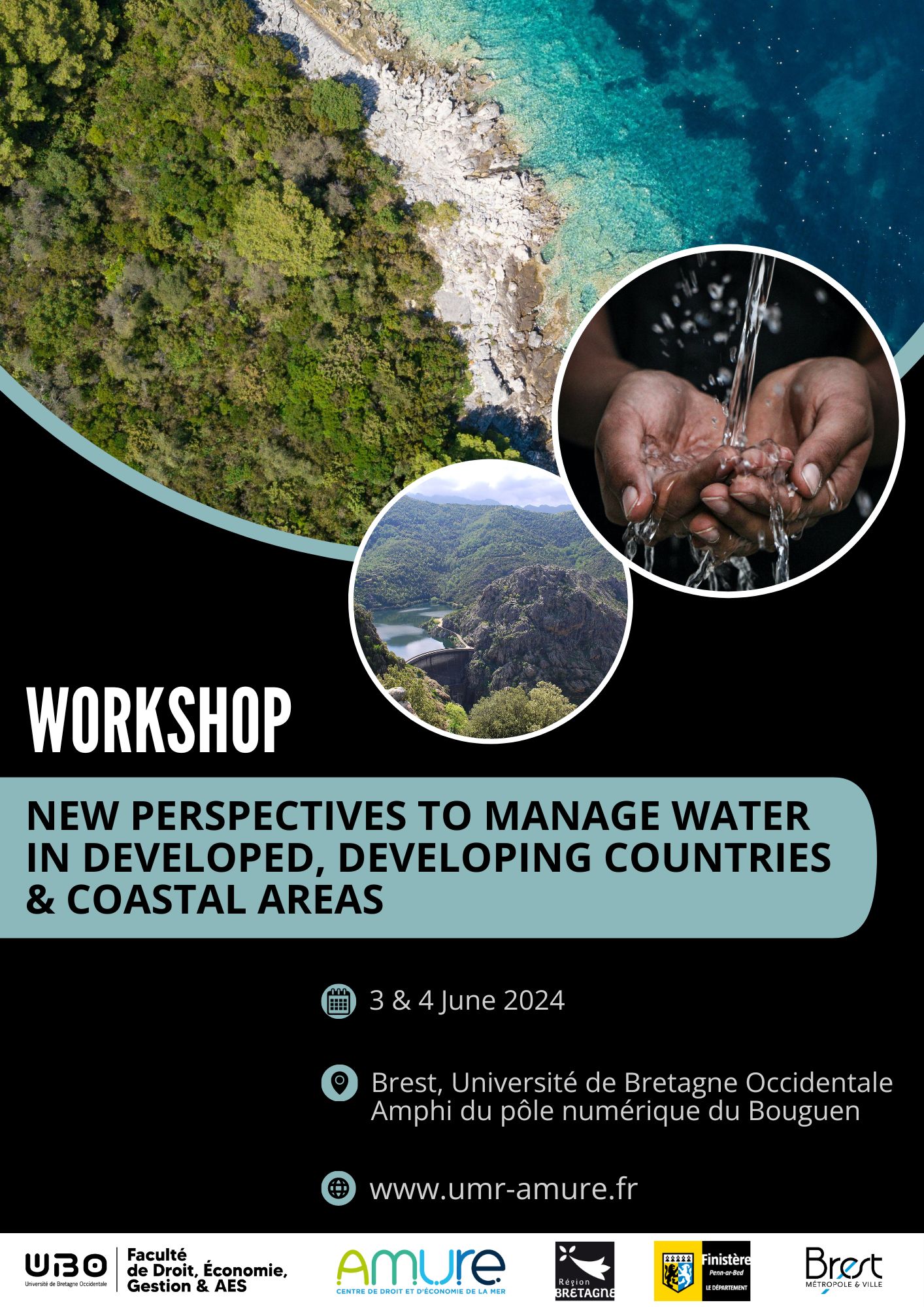 Presentation
Presentation
As the world grapples with the escalating challenges posed by climate change, the imperative for implementing new policies geared towards the preservation of water resources and marine areas has become increasingly critical on a global scale. The management of water usage, long recognized as a pivotal issue, has gained heightened urgency in light of the United Nations’ alarming report that approximately 2,000 million people reside in regions plagued by water stress. This scenario is further exacerbated by the growing impact of climate change on droughts, as highlighted in the UN’s 2021[1] findings. Moreover, the deterioration of water quality, fueled by inadequate sanitation infrastructures and the environmental toll of economic activities, poses a significant threat to the sustainability of water bodies. Alarmingly, a considerable percentage of households worldwide continue to lack access to basic water services, underscoring the urgency of addressing these challenges. These concerns are integral to the United Nations’ 2030 Agenda for Sustainable Development, with Goal Number 6 specifically targeting the provision of clean water and sanitation for all, alongside the sustainable management of water resources. Within this context, the residential water sector, despite not being the largest consumer of water in terms of volume, emerges as a critical area for effective management. The situation is particularly acute in coastal areas, which not only confront unique challenges such as increased water resource scarcity due to tourism and aquifer salinization but also hold potential as key players in the desalination industry. This multifaceted crisis calls for a concerted global response, blending policy reform, technological innovation, and collaborative efforts, to ensure the judicious use and preservation of our planet’s precious water resources.
The aim of this workshop is to develop an international research network to encourage collaboration between AMURE members and national and international researchers in water economics. In the long term, the aim is to compete for an ANR or European call for projects (Water JPI, H2020, etc.). To this end, the workshop will bring together specialists in water economics and will be open to all members of the AMURE laboratory who wish to attend.
[1] UN: 2021, United Nations Water Annual Report, Geneva, Switzerland
Program
9h>9h30 – Welcome
CHAIR 1 : WATER & EXPERIMENTAL ECONOMICS – 9h>12h
9h30>10h15 – Binet M.E (UMR AMURE), & Denant-Boemont L. (CREM Rennes 1)
- From Incentives Effect of Non-Linear Pricing Schemes to Behavioral Confusion: A Laboratory Economic Experiment
10h15>11h – Binet M.E, (UMR AMURE), M.G Valinas (OVIEDO), S. Teyssier (GAEL)
- Social norm to save water : first results from a lab experiment
11h>11h45 – Balado-Naves R. M Garcia Valinas (OVIEDO, Spain), Binet M.E, (AMURE, UBO), S. Teyssier (GAEL, UGA),
- Nudging in a public good context : a comparison between lab and field experiments
12h>13h30 – Lunch
CHAIR 2 : WATER & DEVELOPMENT – 14h>17h
Session Chair : TBC
13h30>14h – Abdallah ZOUACHE (Sciences Po Lille, France)
- Les enjeux de l’eau au Moyen-Orient et en Afrique du Nord
14h>14h30 – Mourad KERTOUS (Laboratoire AMURE, Univ Brest, France)
- Analyse des déterminants des difficultés de paiement des factures d’eau potable : Cas de Béjaia (Algérie)
15h>15h30 – Coffee break
15h30>16h Soufiane BEKHTAOUI1, Chérifa ABDELBAKI1,2, Mourad KHALDOON3 Online (1Pan African University, Institute for water and energy sciences including climate change, University of Tlemcen, Algeria, 2Laboratoire EOLE, University of Tlemcen Algeria, 3Department of Water Resources Engineering, Lund, Sweden):
- Development of Strategies for the Allocation of Water Resources in the Ghriss Basin in Algeria
16h>16h30 Myriam BEN SAAD (Kedge Business School Paris, France):
- Desalination and Water Policy: Evidence from Algeria
16h30>17h Samir B. MALIKI (Laboratoire AMURE, Univ Brest, France / Mecas, Univ Tlemcen, Algeria):
- Seawater Desalination in Selected Mediterranean Countries: The State and Trends
19h30 – Dinner
Workshop
3 & 4 June 2024
Université de Bretagne Occidentale
Pôle numérique du Bouguen
6 Rue du Bouguen
29200 Brest
Organizing Committee
- Marie-Estelle BINET, AMURE/UBO
- Mourad KERTOUS, AMURE/UBO
- Samir MALIKI, AMURE/UBO
Financial support
- UBO, Faculté de droit, économie, gestion & AES
- UMR AMURE
- Région Bretagne
- Département du Finistère
- Brest Métropole
To participate
If you would like to attend, please send an email to : umr-amure@univ-brest.fr

